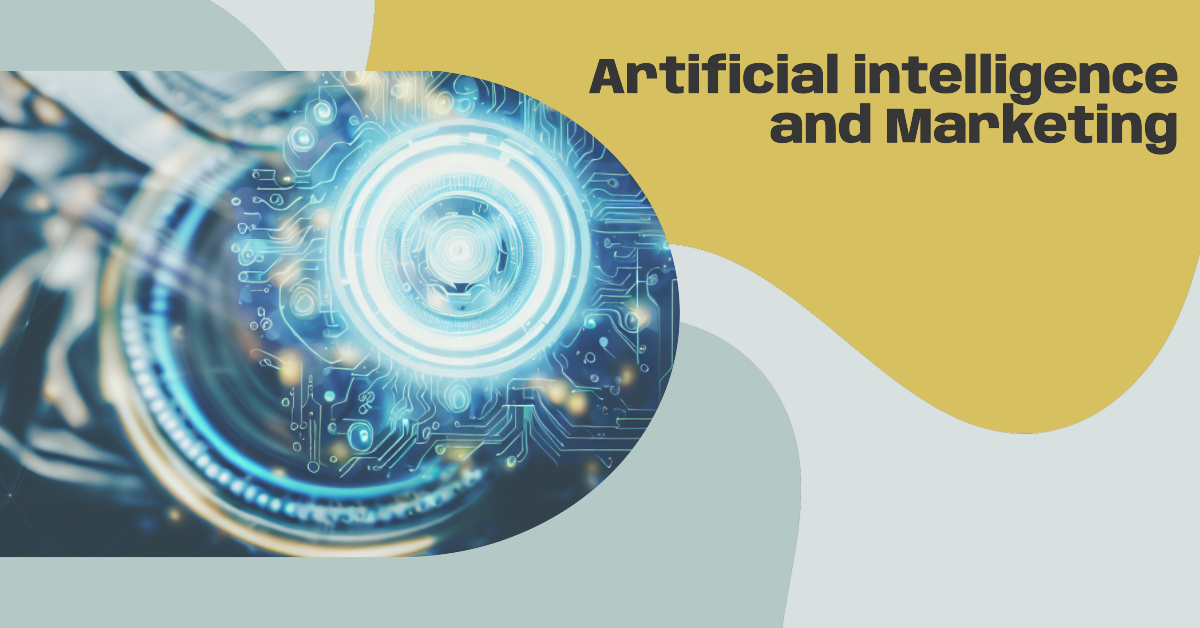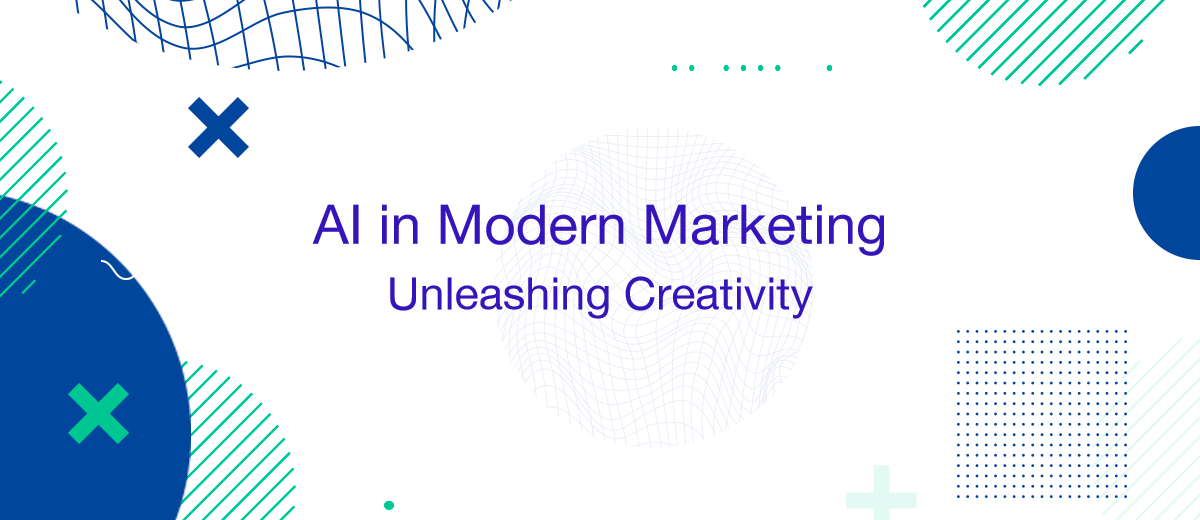Artificial intelligence is rapidly being introduced into various areas of our lives. The applications of AI nowadays range from chatbots to higher-specialized solutions. For example, AI is boosting agricultural productivity and through sensors, it is securing human habitats. Governments are looking into how AI can assist them in locating any violent content on social media platforms. AI is also proven to be essential in the development of autonomous vehicles. In this article, we will talk about how artificial intelligence technology helps to solve marketing and creative tasks.
What is AI in Marketing?
Artificial intelligence (AI) technologies are being used in marketing to make automated decisions based on data collection, data analysis, and additional observations of audience or economic trends that may have an impact on marketing efforts. In digital marketing campaigns where speed is crucial, AI is frequently used.
To ensure maximum efficiency, AI marketing tools use data and customer profiles to learn how to best communicate with customers. They then serve them tailored messages at the appropriate time without help from marketing team members. Today's digital marketers frequently use AI to support marketing teams or carry out more tactical tasks that don't require as much human nuance.
Why Does AI Matter to Marketers?
Because everything will alter as a result. We think and create for a living as marketers, which classifies us as knowledge workers. For marketers to determine whether AI can help, there are four key aspects to take into account. Marketers must determine whether the work is generative, repetitive, or data-driven.

For instance, while sending an email, you must choose the recipient list, the subject line, and the time of to send. This choice was made using the data. When analysing past performance to inform future action, this is a predictive decision. You're attempting to guess who will read this email and respond when they do.
Utilizing the same procedure, such as sending an email, every time is repetitious. Making the generative decisions is the image, language, video, audio, or code. When you consider those four elements, you'll see that marketers work in at least one of those categories every day. There is a chance to apply AI to support a task. Clever automation can accomplish at least 80% of what marketers do on a daily basis. In the coming years, AI will speed up and help with various jobs.
Benefits of Using AI for Creative and Marketing tasks
The work of a marketer is related to the generation of ideas, data analysis, content creation, and effective interaction with customers. Let's take a look at the areas in which AI can help marketing professionals.
AI can Help Marketers Quickly Test and Iterate on Ideas
Once marketers have come up with a few fresh concepts, AI may be utilised to quickly test and refine those concepts. This can assist marketers in determining the best concepts and gradually improving their efforts.
AI Can Help Marketers Generate New Ideas
In order to spot trends and patterns that people might not be able to detect, a lot of data can be analysed using AI. The creation of fresh marketing campaign concepts can then be done using this information.
AI can Help Marketers Automate Tasks
AI may also be used to automate a variety of marketing-related operations, including content creation, social media post scheduling, and ad campaign management. As a result, marketers have more time to devote to jobs that require greater creativity.
The Meeting of AI and Creativity
- Automate the work with leads from the Facebook advertising account
- Empower with integrations and instant transfer of leads
- Don't spend money on developers or integrators
- Save time by automating routine tasks
In contrast to worries that AI may limit human creativity, it has actually expanded the range of possible forms of artistic expression. AI frees up human marketers to engage in strategic thinking and creative problem-solving. By performing tedious and data-intensive activities. Campaigns were produced as a result of this symbiotic interaction. AI and human creativity are not just data-backed, but also emotionally compelling.
AI Improves Customer Insights
Businesses may learn more about consumer preferences, and behaviours. And pain spots with the use of AI-powered products. AI finds trends in data from numerous touchpoints that human marketers miss, enabling more precise and efficient communications.
Creating Personalized Content
Personalized content production is one of the most compelling ways AI fosters creativity. AI systems examine user data to produce customized content that speaks to certain consumers. Search engines adore high-quality material that is useful. For the purpose of giving readers original content, use a paraphraser. It helps ensure that readers receive original content. This degree of personalization boosts engagement and encourages sales.
Marketing Campaigns Optimization
AI instantly optimises marketing initiatives using in-the-moment data analysis. In order to make sure that each campaign is a dynamic and ever-evolving creative endeavour. It modifies techniques based on customer responses.
Predictive Analytics and Creative Strategy
The predictive analytics capabilities of AI enable marketers to anticipate trends and consumer preferences. Allowing them to proactively design campaigns that resonate with their target audience.
Breaking Down Data Silos for Creative Collaboration
By removing the data silos that frequently impede creative processes, AI enables seamless communication. It unites data from numerous sources, giving marketers a comprehensive perspective that encourages creative thinking.
Marketing's Human-AI Symbiosis
While AI can automate jobs and produce data-driven insights, human ingenuity will always be more valued. Campaigns are given a human touch that AI cannot match in terms of emotion, authenticity, or storytelling.
What are Some of the Current Limitations of AI?
Despite how remarkable the technology is, it is still in its infancy. Consider generative AI tools as an example. They often make mistakes. They may provide inaccurate details or have problems involving names, dates, locations, and citations. Tools for generative AI could have high mistake rates. Although they are still strong, the error restrictions can currently act as a barrier.
You might not even be permitted to utilize any of these technologies, depending on the industry you work in, such as financial services, healthcare, or legal firms. Due to the inherent hazards of these instruments, these industries often use them with extra caution. Although the technology exists and brings value, there are still barriers, including accuracy, that can hinder your progress.
Conclusion
In the ever-evolving landscape of marketing, Artificial Intelligence is proving to be a pivotal ally. By facilitating rapid data analysis, enhancing creativity, and automating tasks, AI allows marketers to focus on nuanced, strategic aspects of their campaigns. While the technology is not without its limitations, the synergy between AI and human creativity promises a future where marketing campaigns are not only data-backed but also deeply resonate with audiences on an emotional level. As AI continues to mature, its seamless integration into the marketing world will undeniably shape the future of how brands communicate and connect with their audiences.
What do you do with the data you get from Facebook lead forms? Do you send them to the manager, add them to mailing services, transfer them to the CRM system, use them to implement feedback? Automate all of these processes with the SaveMyLeads online connector. Create integrations so that new Facebook leads are automatically transferred to instant messengers, mailing services, task managers and other tools. Save yourself and your company's employees from routine work.

